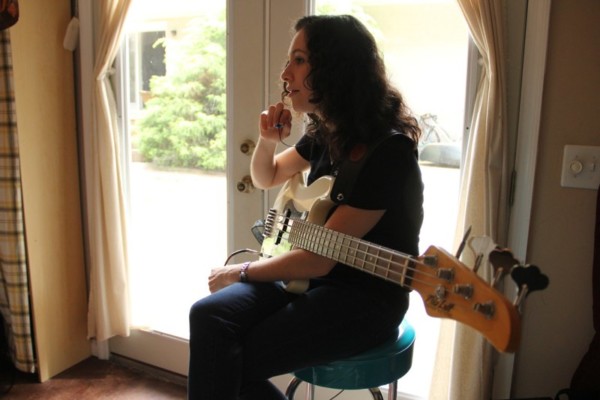Contract Considerations
Whether you’re playing a small gig, major venue, or are signing a recording deal it’s crucial that you know the value of a contract and how to navigate one. This lesson will cover some common advantages and pitfalls to having an engagement-contract for a performance and what to look for in a recording-contract. Keep in mind that the point of a contract is to be fair and protect both parties. If you’re already agreeing to play for someone, or have someone sell your music, you should already be on common ground. Having that common-ground defined in writing makes sure there are no surprise disputes that can bite either party later. This is not an exhaustive guide – I am not a music industry lawyer and books have been written on this subject. Rather, I’m trying to highlight a few thinking-points for you to keep in mind when you make your own agreements or find yourself faced with one.
We’ll start off looking at engagement-contracts. These are written agreements made between your band and your venue for when you play, how long you play, your pay, and outstanding conditions. For a smaller venue (e.g. bar) this won’t be anything terribly complex. Take the following simple contract as an example:
Agreement between BAND and NEIGHBORHOOD BAR
The BAND will be playing on Saturday March 27th 2010 from 7-10pm at the BAR. There will be three sets with two 15 minute breaks between sets.
The agreed payment is $XXXX to be paid in full at the completion of the show on March 27th 2010. Changes in payment amount must be submitted in writing to the BAND and approved.
If the performance is to be cancelled by either party at least one-weeks prior notice must be given by the cancelling party in writing. The BAND will not be held responsible for unexpected cancellations due to inclement weather, illness, emergency, or other unforeseen and uncontrollable circumstance.
BAND SIGNATURE
BAR OWNER SIGNATURE
There’s nothing in here that should cause offense or be surprising to the venue owner. You’re simply getting it in writing that 1) you’re playing at a specific time 2) you’re getting paid a specific amount at a specific time and 3) you’re not responsible for things you can’t control that could interfere with the gig. If the owner won’t agree to what you have in writing, ask him what to change and then go from there. Either way, it’s a good idea to have something basic in writing – especially concerning payment. While verbal agreements are technically legal contracts they are much harder to enforce. Usually having a brief written agreement such as this will keep you from getting screwed at the end of the night.
A more complex engagement-contract might include items about food, general conduct/attire on stage, insurance on your equipment (which you should already have yourself), sound people, and selling merchandise. Again the point is to be fair and to protect both parties. You’re not trying to hide things in the contract, and your venue host should not be trying to weasel out of putting what you agreed on in writing.
A recording contract is a whole different ball-game. You’ll probably be working with a manager or agent of some kind, but if you are presented with a recording contract you should take the time to become familiar with it before signing it. It’s easy to think “I made it! I have a recording contract! Sign sign sign!” but caution is always a good stance to take to make sure your best interests are reflected in the contract.
The first thing to be aware of in any contract is the definitions. This does not apply to engagement-contracts too often, but with a recording contract you’ll frequently see a section dedicated to defining certain terms used later. It’s important to pay attention to these definitions because a normal common-sense term may have a narrower, or broader, definition within the contract. The big one to look for is the definition of recording costs. This should be precisely laid out so you exactly what all is considered a cost. Keep these definitions in mind when you review the rest of the contract, otherwise you will probably misinterpret the practical effect of what is offered later.
Make sure any previous verbal agreements are reflected in the contract. You might be surprised to see a line stating that the written contract cancels out or supersedes any previous verbal agreements. It’s not a problem if that line is in the contract – just make sure your previous verbal agreement is in there as well!
There will be a lot of legal points in the contract, so you may want to have a consulting lawyer familiar with the record industry look over the document as well, but you should be aware of the laws that are referenced and which states they refer to. A contract may specify a specific state’s interpretation of the law will be used in the enforcement of the contract. Some states are more favorable than others for recording artists. The most likely scenario is that California, Tennessee or New York will be the state where a breach of contract lawsuit would take place. Do a little research and find out what you’re dealing with. Even if the record company doesn’t budge on this point you should be fully aware of what you’re potentially getting into. Likewise, the contract may reference other existing contracts or laws. It is important that you review the referenced contracts because they can significantly alter the interpretation of your contract.
Run the numbers. The numbers will not lie. Take your potential contract and figure out with exact values of how much royalties will be, the total accrued recording costs, and what you are responsible for. A “$250,000 Record Deal” may translate into you earning $1.50 per CD sale after the record industry regains its investment. Make up some numbers and figure everything out before hand, that way there are no surprises. Be sure to include applicable taxes and other associated fees for the processes! It’s common-sense, but you should only sign a contract if it is in your financial best interest. You’ll be investing a lot of time, talent and your passion into this process. Know what you’re getting. Additionally make sure you fully understand the copyright and royalty granting process as it pertains to your music. If you’re looking for a clause-by-clause guide with sample contracts, check out The Musician’s Business and Legal Guide by Mark Halloran.
Finally, keep in mind both the items that are in the contract and the items that are missing. You want to make sure everything is defined. If you are unfortunate enough to end up in a legal dispute over your music you want to make sure the contract is clear. Something given on page 10 may be taken away on page 25, you never know, so read the full agreement. You can get copies of example agreements so you have some ideas of what to look for ahead of time.
Contracts may seem like a lot of work, but in the long run they’re worth it. Nine out of ten times a venue host won’t try to short-change you just because they know you have an agreement in writing. In the long run a contract is the only kind of standing protection you have to be sure royalties are awarded and that your music remains yours. Take the time to educate yourself about the process and especially about your contract before you sign anything.




great article, especially for someone who’s looking to be gigging a lot this year.